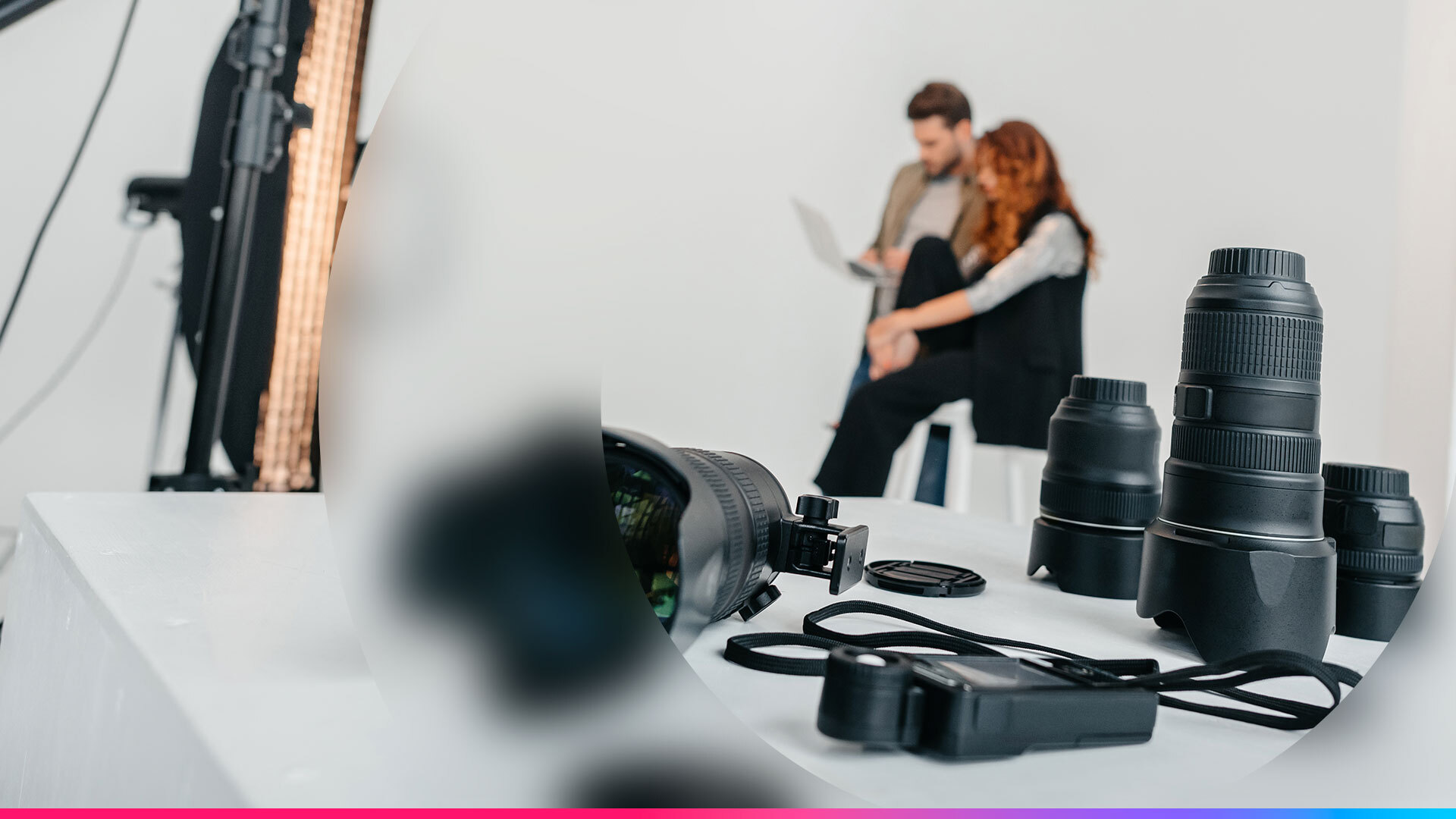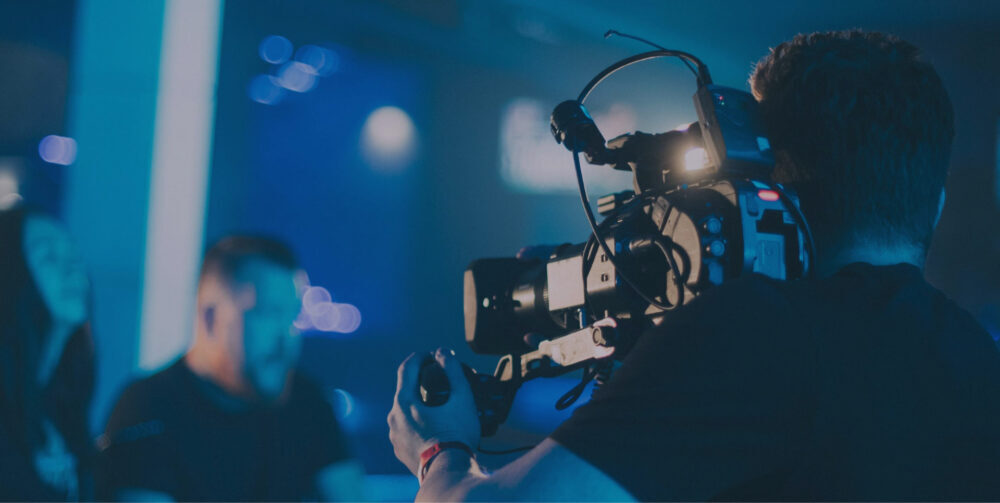
Buying video equipment? Ask yourself these 3 questions!
Easy as 1, 2, 3.
Equipment is an essential part of any business - it cannot function without it. But how can you make sure your business is equipped with all the necessary gear?
Simply ask yourself these three questions:
1. Buying or leasing?
Both purchasing and renting equipment have their benefits and drawbacks, as discussed in a number of articles. Ask yourself the right questions to find a solution that is best for your business.
- Does your equipment have an expiry date? Even if a laptop is well-maintained, it will eventually reach its expiration date as newer, better, and shinier versions hit the market. Leasing can help you stay ahead of the innovation curve so you are not stuck with outdated equipment.
- Can you afford the initial cost? Investing in new equipment can require a significant financial commitment. Do you have the necessary funds to treat yourself without causing a major dent in your business budget?
- Are you able to maintain and repair the equipment? If you are unable to organize the maintenance and repair of the equipment yourself, working with a leasing company can reduce the impact on your organization. Let the professionals handle it while you focus on the important stuff!
What to consider when buying video equipment
Another benchmark to look at is the number of productions you’ve needed gear for in the past. You can own the most impressive cinema camera in the world, but if you barely need it, you will struggle to find gigs that cover the cost. And the last thing you want is to feel forced to do uncreative work to maintain payments.
Moreover, having your own gear could potentially limit you, as in that case, you might pick the shiny camera and not consider the gear the shoot actually calls for.
An alternative is to invest in higher-end camera equipment and put it up for rent at a rental house. Especially if you're working with the gear regularly, you can make some money on the side.
It speaks for itself that rental houses offer a wide variety of video equipment. Does your production require a clear and sharp image? Go for RED. Does it call for creamy and film-like shots? Go for ARRI. It's easy to go from one to the other when you're standing in a rental house. It's less easy when you're not willing to pay $100K.
So, what should you buy?
Of course, that’s very subjective and it all depends on the types of production you want to work on. Think about what gear you can use on every shoot and invest in that. cameras and lenses will differ depending on the needs of the shoot, but you will always need a monitor, for instance. Some items, like a cine saddle, funky filters, and other unique tools, are more practical to own rather than renting them each time. These items can add a special and distinctive touch to your work.
Still not sure what to do? We’ve made a list of some extra pros and cons of leasing vs. buying in this blog post.
Keep in mind that when you decide to purchase the equipment, you may need to build a business case to persuade others on your team. To convince them, you'll need to demonstrate the financial and user value that the investment will provide. No worries, our blog post covers this as well!

2. New or used?
Alright, now that you've made up your mind to level up your gear, it's time for the ultimate question: should you go for brand-new or pre-loved equipment?
The greatest perk of buying used gear is the jaw-dropping discount it brings. We're talking about potential savings of up to a whopping 90% off the original price! Who doesn't love a good bargain, right?
However, if you're on the hunt for cutting-edge, state-of-the-art equipment, the secondhand market might not have what you're looking for just yet. Patience is key when waiting for the latest and greatest to hit the second-hand market.
While there are risks associated with choosing used items instead of new ones, there are several steps you can take to minimize these risks:
- Check the fine print. Is there a warranty on the equipment? Does it transfer to you when you purchase it? You don't want to save money upfront only to spend it on repairs later. It's all about making smart moves and avoiding any sneaky surprises.
- Find a reputable source. You obviously want to buy all your equipment from a trustworthy seller, but this is even more important when buying used equipment. Trust your gut and walk away if you have any doubts or negative vibes. Remember, it's all about finding that perfect match and avoiding any shady deals.
- Test, test, test. A new paint job can make almost anything look as good as new. Take your equipment for a spin and see how it performs in action. Just like test driving a car, give your gear a test run and avoid any nasty, unexpected surprises along the way.
3. How to pay for it?
You have made the decision whether to buy or lease and have also determined whether to use new or second-hand equipment. Now, it is time to address perhaps the most important question of all – how are you going to pay for it?
Here are a few options to consider:
- Have somebody else pay for it. 🤷🏼 Ever heard of magical government grants or funding opportunities? Explore if you're eligible for a grant in the US at USA.gov or discover grants in the UK at gov.uk. It may require some paperwork and hoops for you to jump through, but hey, it's like getting free money!
- Embrace the power of loans. Loans aren't just for fairy tales - they're a tried and true method for businesses to grow. Beyond the traditional bank loans, there are alternative options tailored for small businesses like OnDeck or Fundera. These companies were created with small businesses in mind, so they're more likely to understand your needs and offer a deal that fits your story.
- Call upon your community to invest in you. Crowdfunding may not be the answer to every prayer (good luck getting people to fund your new server), but if your local community directly benefits from your investment, they might be willing to lend a helping hand. This approach works wonders for rental businesses - customers can prepay for their rentals, keeping the cash flowing!
One last tip we’d like to share: You may not want to hear this, but at some point in time, your gear will get lost or stolen. Unfortunately, we can't make your lost or stolen equipment reappear like magic. What we CAN do is prepare you for the worst. Discover our top 6 simple tips that’ll give you the best chances of recovering lost or stolen equipment and keeping your gear safe and sound.
Remember, the perfect combination of buying or leasing, new or used, and financing options is unique to each business. What is most important is that you know about all of the options out there and find the combination that works best for your business!
And hey, don't forget to check out our newsletter for more exciting insights from Cheqroom!
More blog articles











